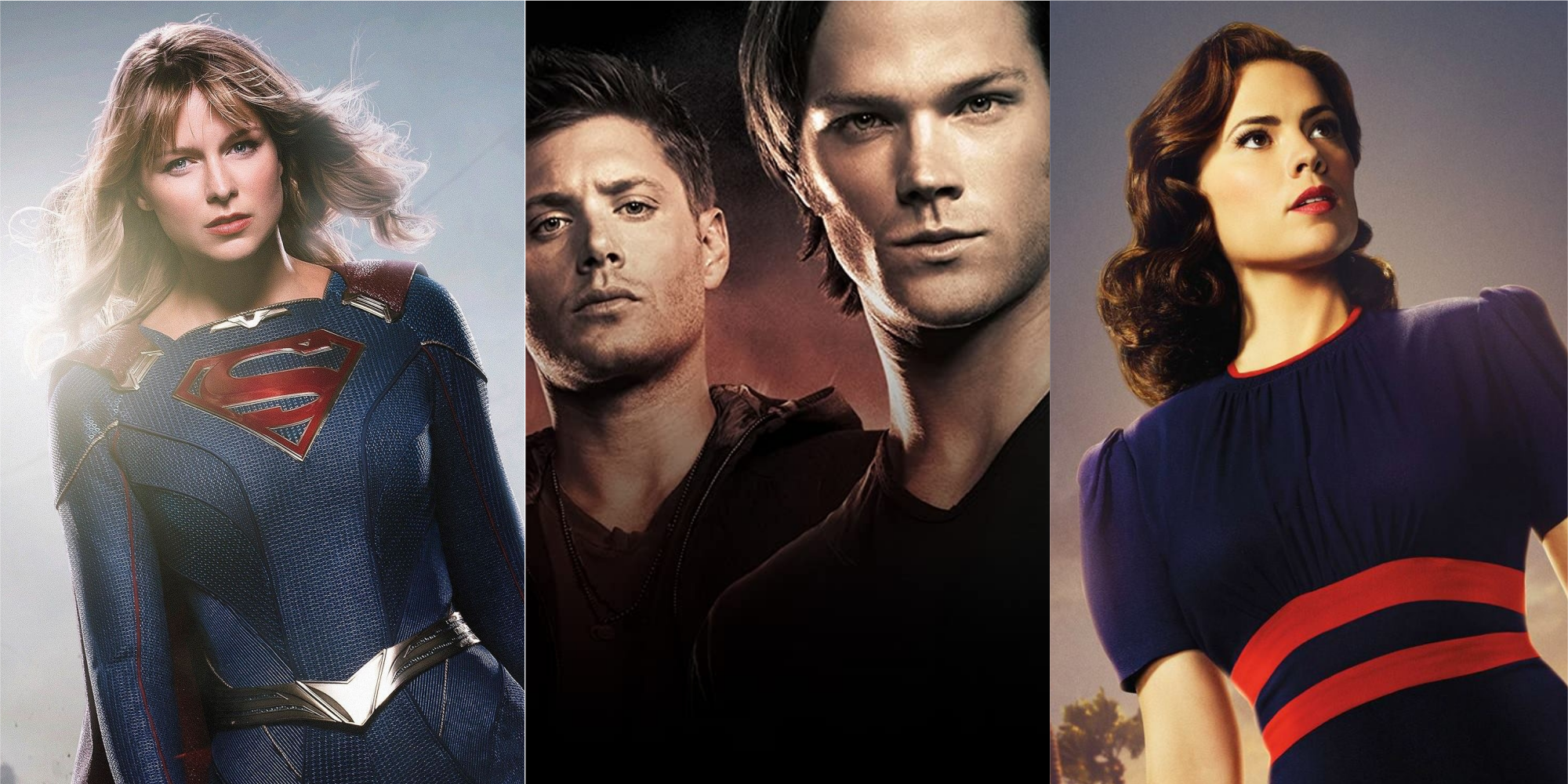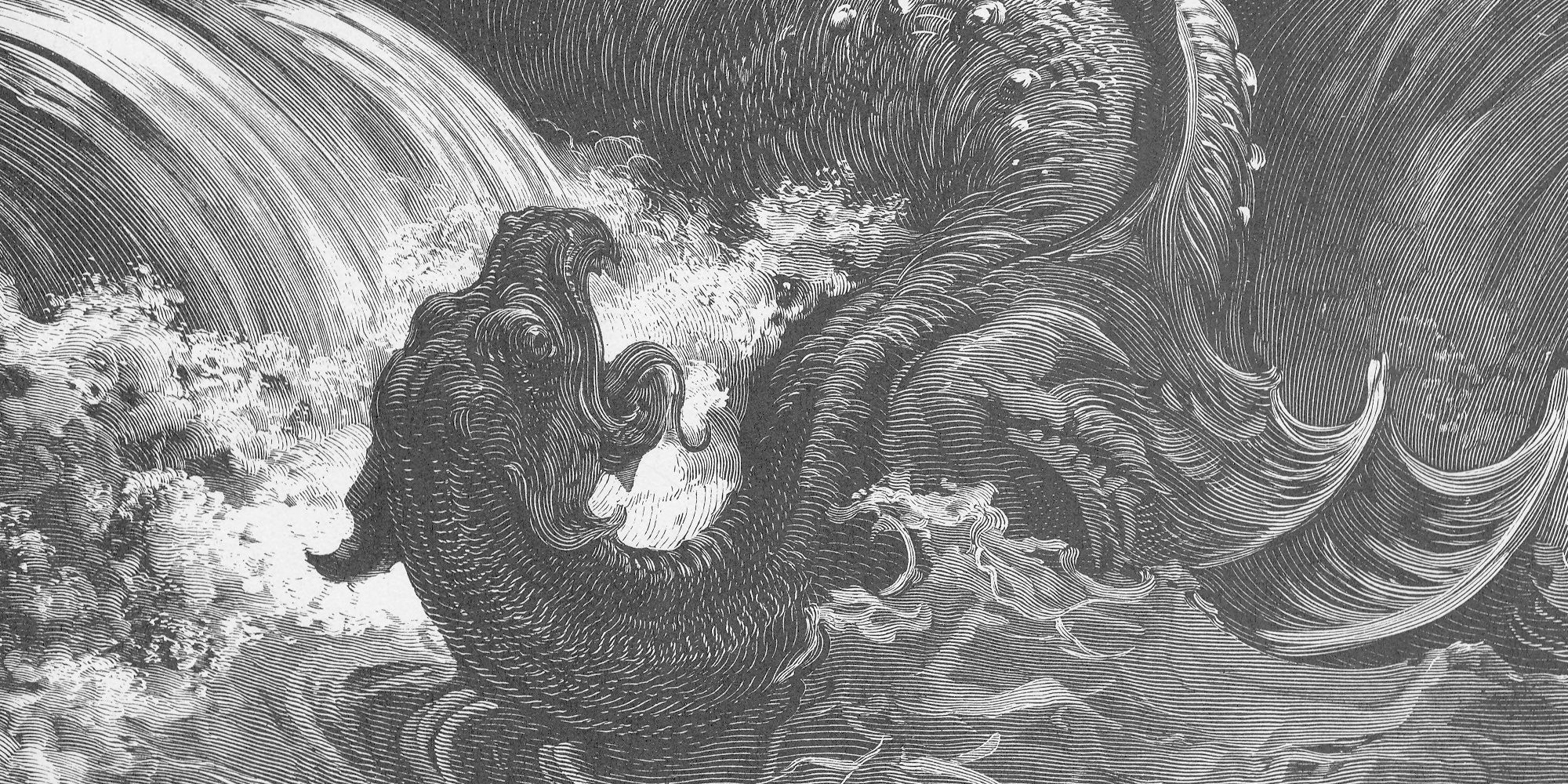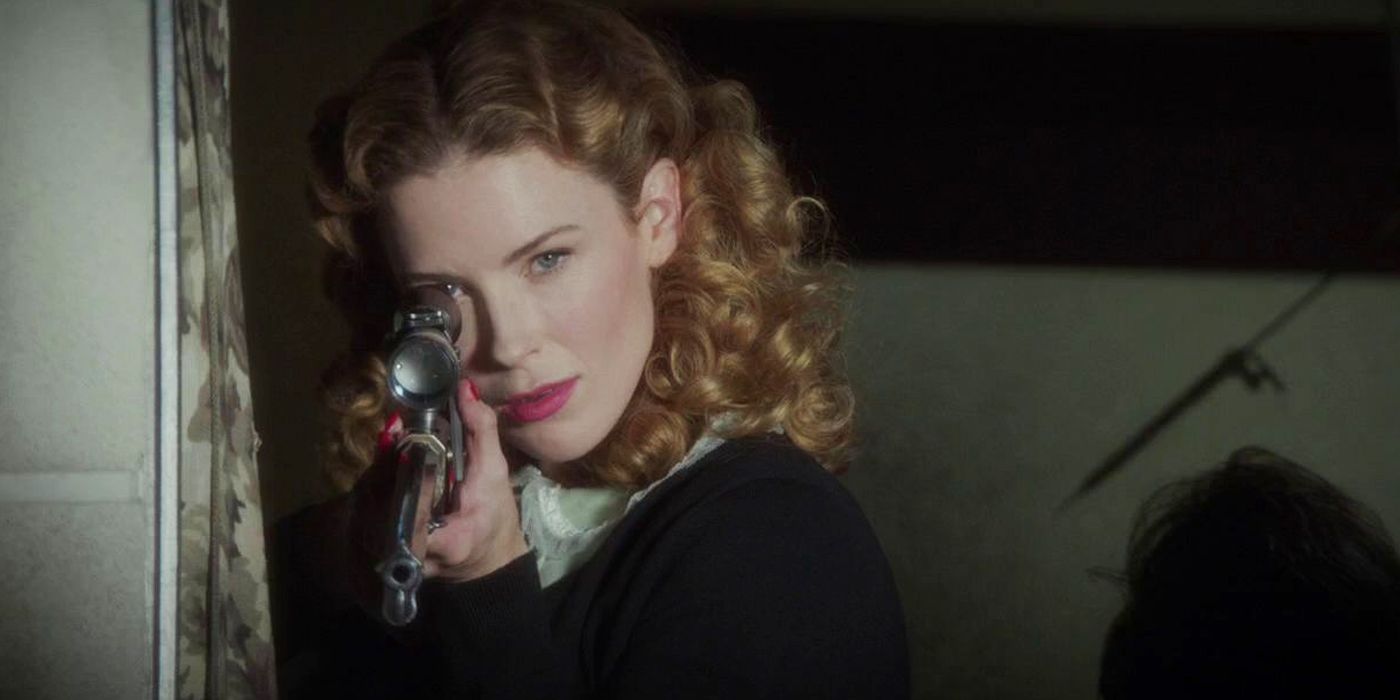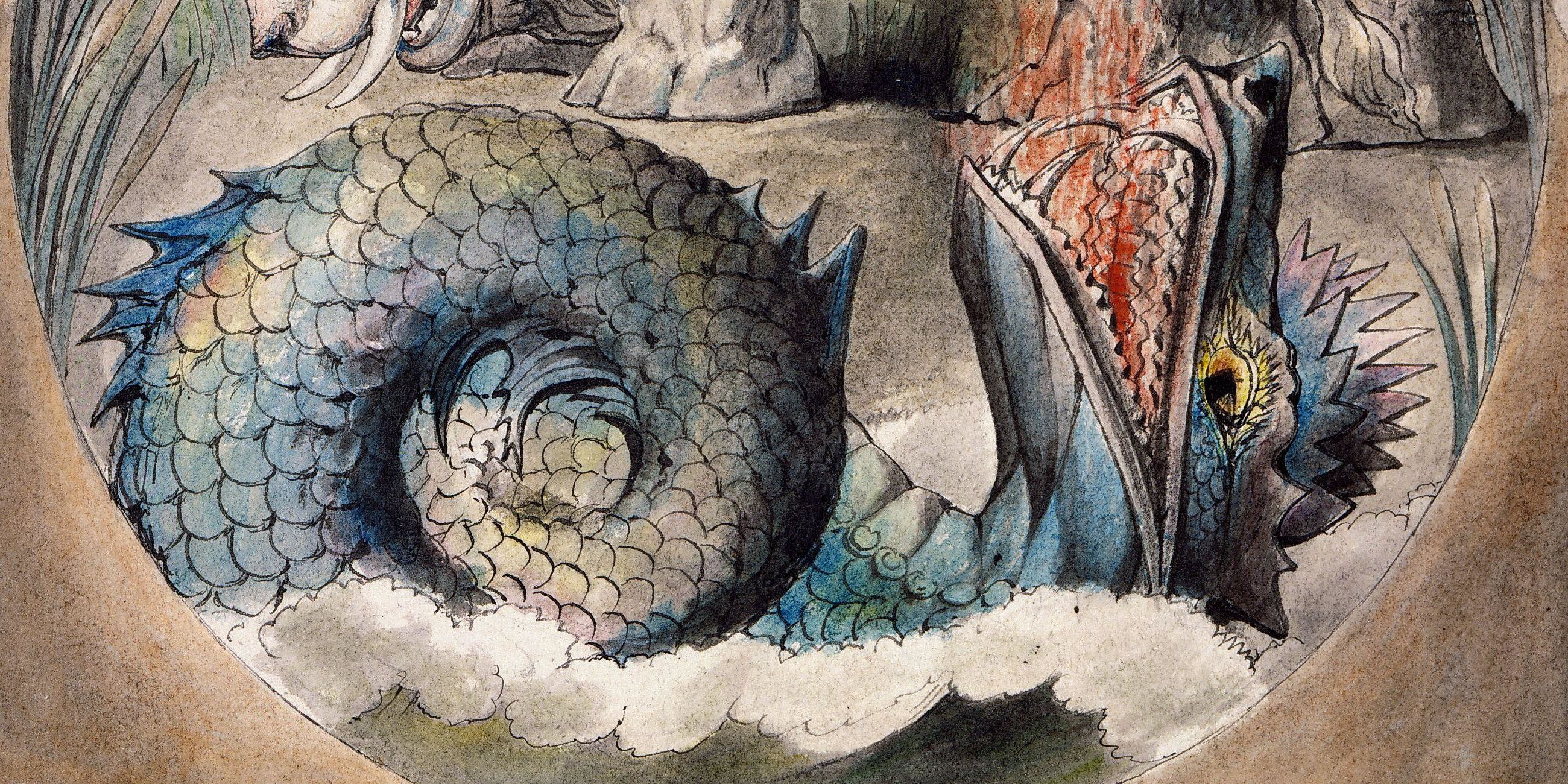What do Supergirl, Supernatural and Marvel's Agent Carter have in common? They all feature different takes on the mythological Leviathan. The biblical beast has a grand name but, as with many things, there’s a deeper meaning behind it. And filmmakers and showrunners know it. Thus, we have three distinct TV shows that have used it to christen very distinct villains.
Let's examine the mythology behind Leviathan to see how well Supergirl, Supernatural, and Agent Carter utilized its hidden potential.
The Leviathan Myth
Leviathan is a primordial power. In many different sources, the name is associated with a great sea serpent. In religious texts, the act of fighting Leviathan is seen as a symbol of God’s power. There are several instances of such battles: in Christianity, it is God that kills it to save the people, and in Norse mythology, Thor is predicted to fight Jörmungandr during Ragnarok, with both dying in the process. The constant struggle between a godly power and the sea serpent can be compared to the battle of chaos and order, with the gods representing the latter (and almost always winning).
Supergirl's Leviathan
With a better understanding of the myth, the name of the main villain from Supergirl’s Season 5 can be seen in a different light. In this case, both Leviathans are considered to have existed since the beginning of time. The mysterious organization has roots in Jarhanpur, a sister planet to Krypton, which was doomed for destruction. Several locals escaped and settled on Earth. Here, the Jarhanpurians assigned themselves a new name, Leviathan, and worked from the sidelines, ensuring the fate of the planet is to their liking.
The show posited that the group is behind various disasters that have befallen the inhabitants of Earth, going back to the extinction of dinosaurs. Leviathan is also responsible for the bubonic plague and the destruction of Pompeii, as well as other massive-scale events in history.
The Leviathan in Supergirl is led by beings who are associated with elements, such as fire, earth and electricity (no water, though, strangely enough). This can be seen as the show’s take on superpowers, but it also fits in with the primordial narrative that is associated with the myth, as elements can be linked with the start of time.
Then there’s the entire idea of chaos vs. order; life vs. death. Supergirl’s battle against the Leviathan has humanity at stake. If she loses, the Jarhanpurians will take control and will likely purge any who they see as unfit, much like they did in the past. The fight between two can also be viewed as the echo of the godhood that often comes up with the Superman franchise since the sea serpent’s death is brought upon by a godly power to maintain the wellbeing of humanity.
Supernatural's Leviathan
Supernatural, by its nature, deals with a lot of mythical elements, and it’s no surprise that it borrowed Leviathan as one of the main villains. Much like with Supergirl, the show’s Leviathan monsters are considered primordial. Death even stated that they existed before mankind, but God had to put them away before they destroyed the fledgling humans. Leviathan became the first inhabitant of the Purgatory.
The elemental connection is gone here, but there are some hints of it left in the subversion of its watery origin. Leviathan, like a sea serpent, was dangerous to humanity, but at the same time, it was confined within the element. In Supernatural, these monsters gained freedom by spreading across the country using water as a medium. They infected the new hosts and were able to freely move on the dry land.
Some Leviathan imagery is associated with devouring humans. The show took this to a literal level and the monsters have been shown to possess an insatiable appetite. Their plan for humanity is to make them complacent (borderline brainwashed) and keep them well-fed and healthy, so the Leviathan can use the species to feed on.
Of course, the plan failed, but there was no grand battle between the god and the serpent. Instead, the show ended with a sacred weapon -- something that merges both virtue and sin into one element -- but despite its origin (and the fact that an actual angel was involved), the ending has very little in common with the traditional chaos vs. order idea. Instead, the hunters just do their job, as usual.
Agent Carter's Leviathan
Agent's Carter has perhaps the thinnest connection to the Leviathan mythology. For one, there are no superpowers or hints about the beginning of time. The Leviathan in Agent Carter is, instead, the organization created by the Soviet Union. The group seemingly excels in stealing technology and using it for their own purposes. Much like in the Supergirl, the Leviathan uses assassins, of which there is a multitude who infiltrate various parts of the society.
The one subtle link between the myth and the TV show could be the Red Room program. For this organization, absolute loyalty is important. The Red Room takes young girls and strips them of all humanity in order to create a perfect assassin, essentially killing who they used to be. Metaphorically, this can be seen as the death of individuality and losing yourself to the darkness, which is a reflection of the theme within the mythology of Leviathan being the devourer of humanity.
Leviathan: Canon Divergence
Interestingly enough, one connection remains between all three shows, and it has nothing to do with the Leviathan’s origin in myths. It is technology. In all three shows, the Leviathan is seen utilizing contemporary tools in order to achieve their goals. Whether it’s world domination, death of their enemies or even just for organizational means, the Leviathan embraces man-made technology.
Ultimately, each of these shows offers a unique interpretation of the core mythology of Leviathan. Some connections might be more subtle or obscure, but the showrunners knew what they were doing when they named their villains. Supergirl and Supernatural might have more prominent links to the myth, but Agent Carter provides its own unique interpretation of the threat the primordial monster posed.






